- Home
- Andrew McGahan
The Coming of the Whirlpool Page 2
The Coming of the Whirlpool Read online
Page 2
‘They fly to each of the Four Isles, it’s said,’ one of the other men commented, ‘without ever having to land.’
Dow asked, ‘How far is it? To the other Isles?’
‘Far, and beyond far,’ the man replied.
‘Only the Ship Kings know,’ said the fourth man.
‘And they don’t tell,’ added Dow’s father, with a warning in his voice. ‘Nor is it allowed that anyone should ask.’
But Dow ignored the warning. ‘Has no one from New Island ever been across the sea then?’
His father shook his head. ‘Not in our lifetimes.’ The other two men were watching silently, and Dow knew he could enquire no further.
But for a long time he stayed on the cliff top while the other three ate lunch down by the forest’s edge. He could not define to himself exactly what kept him there, or why the ocean drew him so. After all, he would never be able to climb down the cliff to actually touch the water. And even if he did, he would only be swept from the rocks. Dow could swim – all the village children could, they swam in the Long River when it flowed calm in summer – but even from so far above he could tell that the boiling ocean at the cliff’s foot was no place for any human. So why did he desire so badly to descend?
Howard Amber led the gang abruptly south that afternoon, away from the headland, and they did not go near it again. The snows came and the teams descended into the valley. Dow resigned himself to the long imprisonment of winter and the summer to follow, knowing that all the while he would be waiting for autumn again, and hoping for another chance to spy the sea.
That hope would be cheated. The next year Dow’s father kept his gang entirely to the southern regions of the plateau, far from the headland, ignoring the question in his son’s eyes, and even the displeasure of the other men, for in fact the best timber was to be found in the north. Dow soon understood that he must battle to hide his disappointment from his father, or risk never visiting the headland again. And he must have succeeded, for the following autumn, when Dow had turned fourteen, Howard Amber once more took his team north.
This time Dow knew better than to let his excitement show as they neared the headland. And yet once again he was denied, for on the day that they emerged from the forest and climbed to the rocky edge, they found themselves in thick cloud. The ocean below was hidden, even the sound and the smell of it. Dow turned away heartbroken, and his father watched him.
‘We need not come here again, I think,’ he told his son.
Dow bowed his head. Truly, it might be better if they never did return. This yearning for the sea only seemed to bring him unhappiness, especially if it could be frustrated by something as simple as fog.
He resolved to forget the ocean.
Perhaps because of that resolve life in the village did not seem so bad to Dow that winter, or that spring, or indeed that summer. The valley became sunny and warm, scented breezes wafted down from the hills, and the river grew languid and slow and fit for swimming on the long afternoons.
Also, there was a girl . . .
Her name was Clara. She was a half-year younger than Dow, the daughter of one of the men in Dow’s own gang. He’d known her all his life, but this year was different. Clara was different: her voice, her laugh, the way she looked at him. She too liked to swim, and there came an evening when it was just the two of them sitting together in the warm shadows on the riverbank, cool water beading on their skin. They were talking of small things only, but every time one of them stretched or shifted, they seemed to inch closer to the other.
Finally Clara appeared to come to a decision, and looked up at Dow intently. ‘My father thinks you’re a strange boy.’
Dow wondered if he should be insulted, although he rather liked the way she said strange. ‘Why?’
‘He says you ask questions you shouldn’t.’
Dow knew what questions her father meant. Questions about the sea. ‘I won’t be asking them anymore,’ he mumbled. ‘It does no good.’
‘Oh, I don’t know.’ Clara reached a hand to his forehead, annoyed seemingly by a strand of wet hair hanging over his eyes. ‘You can ask me anything at all.’ And suddenly she was kissing him, her mouth hot and tasting of salt in a way that drove any thought of the sea completely from Dow’s head.
They swam together most evenings after that.
Thus when autumn arrived again, and Dow was fifteen years old and almost full grown, he climbed to the high forests with the other men and there was no special excitement in his heart about visiting the headland. Indeed, he was already looking beyond the coming winter to the following summer, when Clara would be fifteen too, and all sorts of new things might be permissible. In the meanwhile he had sworn to himself that he would cut down trees and be satisfied, hoping for no more. And for the first weeks of the season he held to that vow.
Even so, he was aware that they were trending steadily north through the forest. Then one afternoon he heard the familiar sea-wind high in the tree tops, and knew that they were very near the headland. When they made camp that night his father spoke lightly of turning south the following day, without actually visiting the edge of the cliff. And Dow realised that this was a test his father had set for him. So he said nothing, and did nothing.
One by one the other men dropped off to sleep. Dow lay awake, listening to the wind in the high branches. The sound rose and fell, and in his mind he saw waves rising and falling too, and faint in the night he smelled salt. Not the warm salt of the kiss of human lips, but the cold, ancient salt of the sea.
He resisted. He would not obey the call.
But nor could he sleep. He tossed and turned, and as the night deepened so the wind grew, and now thunder rumbled, and through the canopy he glimpsed bright flashes of lightning in the sky. A storm had come. Dow was sure he could hear, or perhaps feel through the ground on which he lay, the boom of a sea whipped into a rage and pounding against the headland.
The night seemed endless. How could the other men sleep through such wind and thunder?
Finally Dow could stand it no more. He rose and crept away through the trees, navigating by flashes of lightning, until at last he was out of the forest. The headland reared before him. The storm was passing away and dawn was growing in the sky. He climbed to the cliff edge and looked. He saw a wrack of cloud rolling off into the west where night lingered. He saw red daylight mounting on the eastern horizon. He saw the wide tumultuous sea, still roiling from the storm, black except for where it was streaked white with foam. He heard it crashing against the cliff, and so strong was the wind, spray whipped into his face a mile above the waves.
But none of that mattered, for out upon the ocean he saw something that struck him to the core.
Ships.
Great ships, with sails set in defiance of the storm; two of them, one behind the other, only a few miles out from the foot of the cliff. They were heeled far over on their sides in the gale, but nevertheless they plunged headlong through the swell, indomitable, spray bursting from their bows.
Dow had been told tales of such craft, of the vessels in which the Ship Kings plied the seas, but no story had ever warned him of their fierceness and beauty. And in that moment he understood what had been aching inside him ever since he’d laid eyes upon the ocean. This – this was what he wanted. To ride in a proud ship, face forward as the green swells crashed across the deck.
For an hour and more he watched, unmoving, as the sun rose and the ships fought their way out to sea, their sails turning brilliant white when the daylight caught them. Where were they going, these two vessels? Who were the men who sailed them? What waited beyond the misty horizon apart from ice and darkness and danger, and why would they venture there?
Dow didn’t know. But he watched, the yearning acute in his chest, until the ships were no more than pale smudges. Finally, stiff and cold, he stretched and turned away – and was shocked to find his father standing there.
‘Dad . . .’
‘I thought we agreed
that this was no place for you.’
An apology trembled on Dow’s lips, but suddenly he knew that he could not apologise. This was not something he needed to apologise for. This was something in him too great and wonderful for shame.
He summoned his will and stared his father direct in the eye. ‘That’s what I want to do,’ he said, pointing at the distant ships.
‘The forest is your place. Not the sea.’
‘I hate the forest.’
‘It’s impossible. More than you know.’
‘I don’t care. I’ll go anyway.’
Their gazes remained locked for a long moment. Then, to Dow’s lasting astonishment, his father sighed and shook his head.
‘Ah well,’ said Howard Amber, looking northward to the white blurs of the ships. ‘If that’s the way of it.’ He glanced ruefully at his son. ‘You know, your mother tried to warn me this might happen.’
The snow fell hard and early that year, driving the timbermen out of the forest and off the plateau weeks sooner than usual. Dow was grateful for the reprieve, even if it meant that times would be lean in Yellow Bank come the summer. But he was doubtful too, and also a little afraid, for he had no idea what would happen next. He had declared his deepest desire and his father had accepted it, but how that desire might come to be achieved – well, the more he thought about it during the climb down into the valley, the more absurd it all sounded.
Their homecoming was as warm as ever, with hot baths and clean clothes and a family feast in the evening, their little cottage brightly lit and filled with the excited chatter of Dow’s younger siblings. But afterwards, when the children had been sent to bed and it was just Dow and his parents by the fire, it was time to tell the news to his mother. Dow sat by with head hung low as his father recounted all that had transpired on the headland. He waited for his mother’s outburst of protest and dismay. It would be justified. To have an eldest son refuse his father’s trade – it was the gravest disgrace a family could suffer.
And yet when his father was done the only sound in the room was the crackling of the embers. Dow looked up. His mother sat unmoving, staring at his father, an emotion welling in her eyes; not anger, but something worse – a sharp sorrow, already resigned to defeat. His father was merely nodding in return.
Dow could not understand it. What did it mean, this forbearance that both his parents displayed, when they should have been openly furious?
‘Perhaps,’ said Dow’s father at last, ‘we should tell him . . .’
‘No,’ breathed his mother. ‘Not yet. I can’t bear it.’
Dow’s father let his shoulders slump. ‘There’s nothing to be done until the Winter Council anyway. Maybe they’ll be merciful.’ He glanced at Dow. ‘But even at best, son, you mustn’t expect too much.’
‘If they let me go to sea, it’ll be all I could ask.’
His mother wiped away a single terrible tear, then grew stern. ‘I’m afraid you’ll learn that isn’t quite true. But promise me you’ll say no more about it until the council, not to anyone. It will be shame enough for your father and me when it comes out. You can at least spare us that for now.’
Dow reddened, and even though he longed to know what it was his parents were hiding from him all he said was, ‘Yes, Mum.’
*
Winter settled in, and even in the shelter of the valley it was as severe a winter as anyone could remember. The wind moaned, the snow piled up in drifts and the river froze over thickly. Dow sat before the fire with his family at home during the day and drank with the men at night in the Barrel House, listening to the same songs sung and the same jokes told; and none of it was enough anymore. All the while he was hugging to himself his secret dream of the sea. It made him feel set apart, already an outsider to the fellowship of the village.
And then there was Clara. In the crowded indoor conditions of winter there was little enough chance for them to be alone – but he was sure that she could sense the new distance in him, and that she was hurt and puzzled by it. But he held his tongue as promised.
The weeks crawled by, until finally it was mid-winter’s eve, and the moment had arrived. The night was a foul one, with the wind whooping down from the high slopes and the snow rattling cruelly against the walls. Dow and his entire family wrapped themselves in their warmest clothes and fought their way through the drifts to the Barrel House, where not only the men of Yellow Bank but all the women and children, too, were gathering. For mid-winter’s eve was one of only two occasions (the other was mid-summer) when the whole village came together, to discuss affairs, to settle disputes, and (in mid-winter’s case) to acknowledge the death of the old year and to celebrate the birth of the new.
The Barrel House was packed, and warm from the heat of the great central fireplace. Dow soon lost sight of his family in the crush and retreated to a dark corner – determined, if truth be told, to avoid an encounter with Clara. At the opposite end of the hall was the dais where the village elders were seated. One by one these elders rose to talk about the year that had gone and the year that was to come; then finally they called forth those who had arguments to settle. There was a dispute about a boundary between neighbours, and a dispute about an unpaid marriage dowry, and other cases beside, but Dow didn’t care about any of them. He wished only that his father would speak up and get it over with.
He craned his head and looked about the hall, but could see neither of his parents, although he did catch a glimpse of Clara, her head bent as she whispered to one of her friends. Elsewhere children were fidgeting, women were fanning themselves against the heat, men were wistfully eying the beer barrels and whisky kegs lined up against the wall, and a low hum of restless conversation was beginning to drown out the official matters on the dais.
But then at last Dow saw his father rise purposefully before the elders, and speak. Dow couldn’t hear him at first above the noise, but the old men on the dais sat forward in surprise and a hush fell over the room. People shifted so that a space cleared, and Howard Amber stood there alone before all.
‘Did we hear you right?’ one of the elders asked, voice raised over the whine of the wind outside.
Dow’s father nodded stiffly. ‘You did. My eldest son wishes to be freed from his duties to me and to this village. He wishes to be released from timber cutting. He wishes to leave the valley and go to sea.’
There came a collective gasp from the crowd and a flurry of muttered comment; everyone was peering around, looking for Dow. He wanted to sink into the floor, but instead he made himself walk forward. People gave way before him, their expressions hard and doubting, as if he were a stranger, and eventually he stood at his father’s side, the fire at his back and the elders in front of him. His mother, he saw, was off to one side, her eyes downcast.
‘Is it true, boy?’ asked another elder.
‘I’m four years a man now,’ Dow replied, but his voice emerged high and thin; he had never felt less like a man in his life. ‘And yes, it’s true.’
‘Man or not, you should know better,’ the elder scowled. ‘It’s bad enough that you want to insult your father and your mother and everyone here by rejecting the life that has been prepared for you. A worthy life, I might add. But to do so for the sake of – what do you call it again, this foolish whim of yours?’
‘I want to go to sea.’
‘To sea indeed! Where did you get such an idea?’
Dow hesitated, embarrassed now that he had to say it out loud. ‘I . . . I stood on the headland, and I saw ships sailing into the north.’
‘What?! A glimpse of ships sailing by and suddenly you want to throw your life away and disgrace your family? Why, it’s a child’s fancy! Even if it were possible – and I assure you it isn’t – you cannot think we would accede to such an outrageous demand for reasons so trivial.’
The other old men were nodding.
Dow remained upright under their gazes, but there was a hot, humiliated feeling inside him. Permission was not going to be
given.
But then his mother moved forward, her hands folded humbly at her waist.
‘My friends,’ she said softly, ‘there is a circumstance.’
The men on the dais all stared at her. But it was allowed, on this night, that women speak at council. ‘A circumstance?’ an elder enquired.
‘I ask that the Scribes pronounce on this matter.’
Another murmur went up from the crowd, and all eyes turned to an alcove beside the dais. There, in the shadows, sat three men; one young, one middle-aged, and one very old. They were not from Yellow Bank. Indeed, they had no home other than the entire valley, the length of which they roamed eternally, up and down, village to village, year on year. Their calling was to watch and to listen and to bear witness. Any event that occurred – a birth, a death, a fire, a flood – it was the Scribes’ duty to commit to memory. And then to repeat what they remembered for others who had forgotten.
The three conferred for a moment, then the middle-aged man stood forth. There were always three Scribes. They were selected from the younger sons of the valley families and their number was maintained so that the death of one would not mean the loss of the knowledge that all three held. The eldest Scribe was always the master and the ultimate authority upon history, and the youngest of them was always the apprentice, still learning all that the other two could teach him. But it was the middle Scribe who was ever the teller of the tales.
‘Rose Amber is correct,’ he said to the elders. ‘We have knowledge that pertains to this matter.’
‘Very well,’ an elder replied grimly. ‘Pronounce.’
The Scribe strode to the fire’s edge, and for a moment his dark eyes rested upon Dow. Then he addressed the gathering.
‘Hear me, folk of Yellow Bank. The events of which I will speak belong to the far past and no one now living was witness to these happenings with their own eyes. But for generation after generation the Scribes have remembered, and there can be no doubting the truth of what I say, even if a hundred years have passed since.

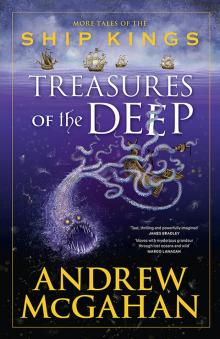 Treasures of the Deep
Treasures of the Deep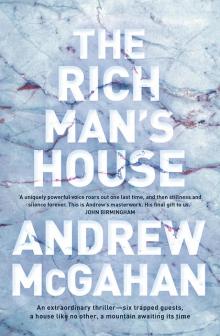 The Rich Man’s House
The Rich Man’s House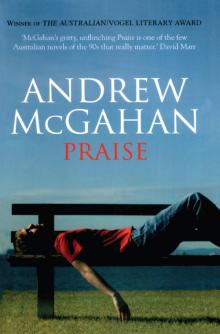 Praise
Praise The White Earth
The White Earth 1988
1988 The Coming of the Whirlpool
The Coming of the Whirlpool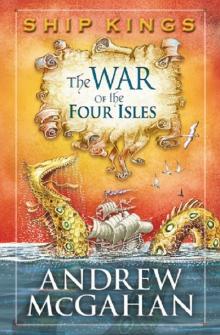 The War of the Four Isles
The War of the Four Isles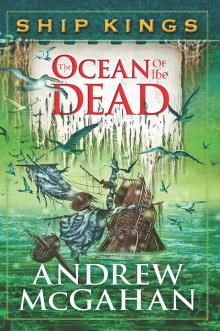 The Ocean of the Dead: Ship Kings 4
The Ocean of the Dead: Ship Kings 4 Last Drinks
Last Drinks Wonders of a Godless World
Wonders of a Godless World Underground
Underground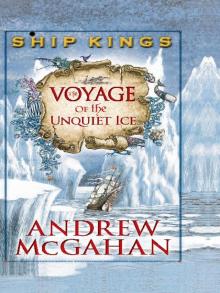 The Voyage of the Unquiet Ice
The Voyage of the Unquiet Ice